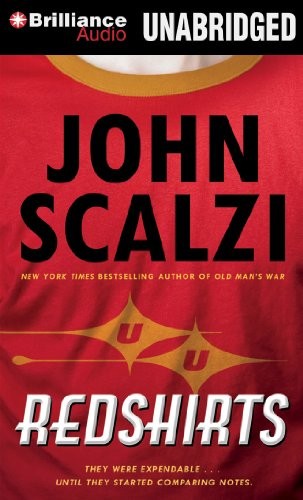Elise reviewed Redshirts by John Scalzi
Almost too self-conceited; very enjoyable and memorable regardless
4 stars
I don't think I've ever seen a properly published piece of writing like this that was so in love with itself and it's premise; it's an absolute credit to Scalzi that this worked for me, because I got absolutely lost along with our crew of eponymous redshirts. I have only a passing familiarity with The Original Series but I had enough to grok the similarities between the bridge crew and that of the Enterprise; safe to say the depictions are imminently recognizable, which is good, because almost every page is the characters discussing the very peculiar meta-narrative dilemma they find themselves in and trying to figure a way to weasel out of it. Characterization takes a back seat; the only things we really learn about our characters by the end of the book is how they react, first to the realization of their predicament, then to the death of their …
I don't think I've ever seen a properly published piece of writing like this that was so in love with itself and it's premise; it's an absolute credit to Scalzi that this worked for me, because I got absolutely lost along with our crew of eponymous redshirts. I have only a passing familiarity with The Original Series but I had enough to grok the similarities between the bridge crew and that of the Enterprise; safe to say the depictions are imminently recognizable, which is good, because almost every page is the characters discussing the very peculiar meta-narrative dilemma they find themselves in and trying to figure a way to weasel out of it. Characterization takes a back seat; the only things we really learn about our characters by the end of the book is how they react, first to the realization of their predicament, then to the death of their peers, then to their evolving problems as they try to solve the overarching one. The main character, Dahl, is practically just a problem solving machine and snark generator; if the core conceit of the book didn't work I'm sure I would have found him terribly aggravating. If you don't like meta-meta-meta-narratives, stay far away; but if you enjoy a bit of the shameless self-indulgence that entails, you'll probably finish it in two sittings.


